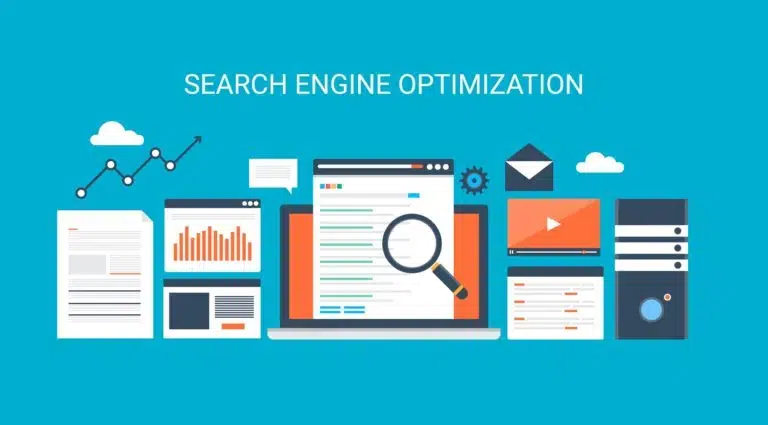
Family Law SEO can play an integral role in the level of success your practice will reach. If done properly, a firm can redo its financial proformas, staff, up and get ready to scale.
The main challenge Family Law firms face in regards to SEO is finding a trustworthy and highly skilled agency. By now, most firms have been sold dreams by a snake oil salesman and flat out been burned. Naturally, these experiences create trepidation and sometimes steer us away from trying again.
I’m here to tell you that not doing SEO for fear of not finding the right partner is a huge mistake.
Investing in SEO for family law for the long haul can actually be one of the most important decisions you ever make. Even more important than hiring the right full-time lawyer or paralegal.
Read this guide and you will be prepared to execute SEO on your own or understand exactly how to filter out the amateurs and align yourself with the right agency.
Why Family Law Attorney SEO is Critical
Let’s face it, family law is more than a calling, it’s also a business. It’s not like personal injury law where you can win million-dollar cases back-to-back. You need a steady flow of new clients to exceed revenue targets.
Most clients don’t become clients overnight. They often start out as leads that you take through a journey to convert them into paying clients. A marketing funnel is what’s needed to navigate them through that journey. Awareness always finds itself at the top of the marketing funnel, and SEO is a proven tactic to help you access clients in all stages of the funnel.
Here’s the thing about SEO: it’s A LOT of work. The Digital Marketing Industry is just as saturated as the legal industry, if not more. Law firms nationwide have caught on to the effectiveness of SEO, and they’ve seen what it can do for their practices (when done properly).
Your Client’s Behavior Online
What’s the first thing that a person does when they need a family law attorney? In today’s world, they’re most likely to run a Google search for a term like “family lawyers near me.” It would be ideal for your website to have a high ranking for that search term. More specifically, you would want your website to rank prominently in the map listings as well as the organic listings.
Achieving a #1 ranking for a high-volume keyword would put you in an entire league of your own. Here’s why: it insinuates that your law firm is more prominent than your competitors’ firms. That in itself is a HUGE plus.
According to HubSpot, 97% of consumers use search engines to find local business info. Additionally, studies show that 75% of users don’t make it past the first page of a search query.
That’s why it’s important to have a winning SEO strategy. A first-page ranking can bring you high volumes of search engine visibility. That visibility will lead to increased website traffic, which gives you even more opportunities to retain new clients. It’s been proven that high rankings can equate to more traffic and more leads.
Every search engine runs on its own specific algorithms. These algorithms were designed to create great experiences for users and align search queries with highly relevant content. By default, most search engines will show 3 organic map listings and 10 organic listings per page when a user performs a query. This is subject to change and some of it depends on the users’ browser settings.
Like all platforms, search engine providers work diligently to keep up with changing consumer behavior. That’s why the nature of SEO is constantly evolving. You have to know how the algorithms work for them to work for you. For that reason, you must stay ahead of the curve to win with SEO.

On-Page SEO
The two main categories of SEO are On-Page SEO and Off-Page SEO. On-page tactics are defined as actions performed on your website.
The first step to ranking on Google starts with your website. As a local business, your website should contain pertinent information for your prospective clients that answers the following questions:
- Who you are
- What you do
- Where to find you
- Your unique selling proposition
- Your company’s history
- How users can get in touch with you
The search engines need these details to confirm that they’re giving their users the right information. Doing the opposite would confuse people and ultimately give them a bad experience.
Proper On-Page SEO requires you to structure and organize your site’s content perfectly.
Sub-Optimal Example:
One service page that represents all of your services. This is a nightmare in regards to how Google will treat your content. It also lacks the opportunity to properly elaborate on each individual service and provide enough value to users.
Optimal Example:
Individual pages for each practice area like Divorce, Restraining Orders, Spousal Support, Child Support, Child Custody, etc.. If the service is important to your firm, it needs a dedicated page with high-quality content.
Here is an example site structure:
Homepage
About
- Our Firm
- Attorney Profile
- Attorney Profile
- Attorney Profile
Practice Areas
- Annulment
- Asset Protection
- Child Custody
- Child Support
- Collaborative Divorce
- Complex Property Division
- Divorce
- Domestic Partnerships
- Domestic Violence
- Fathers Rights
- Grandparents Rights
- Guardianship
- High-Net-Worth Divorce
- International Child Custody
- Judgment Modifications
- LGBT Divorce
- Mediation
- Military Divorce
- Same-Sex Divorce
- Move Away
- Paternity
- Prenuptial Agreement
- Order Enforcement
- Spousal Support
- Paternity
- Prenuptial Agreement
*If you are interested in SEO for family law and don’t have these pages and you offer these services, you definitely need to create them as soon as possible.
Testimonials
Blog
Contact Us
Optimizing your content
Once you have the ideal site architecture and if you’ve created best in class content to accurately represent your services, you’ll want to ensure the On-Page SEO elements are perfect. This will include the following:
Title Tag
Make sure to use your target keyword at the beginning of the Title Tag. Here is the structure I recommend. “Core Keyword | Compelling Copy | Firm Name.”
Meta Description
Your Meta Description is like writing a Google Ad. Make sure to also use the core keyword. This will ensure the text will be bolded when a user conducts a search and your site is displayed on the SERP. Review the meta descriptions of top-ranking pages of competitors or firms ranking well in highly populated cities for ideas.
Your Meta Description is most important when you are already ranking on the first page because it influences your Organic Click Through Rate. Having a high CTR is a user engagement signal that shows Google users prefer your Organic listing over the competition. This signal can help boost your site higher up the page.
HTML Header/H1 Tag
Make sure to use only one H1 Tag and ensure it uses your core keyword.
HTML Header/H2 Tag
You can have multiple H2 tags but make sure at least one of them uses a synonym or a contextual relevant word to your core keyword.
Alt Tags
Make sure to use images on your page and change the Alt Tag to your core keyword.
Video
Statistically speaking pages with video rank better. If you have video content relevant to the page be sure to embed the video somewhere on the page.
Other on-page SEO factors include:
- Mobile-friendliness: Is your website just as easy to navigate on mobile as it is on the desktop? Chances are the user came from mobile so make sure the mobile experience is excellent.
- Your site’s speed: Does your website load in four seconds or less? Speed is only a small ranking signal but slow sites can have a big impact on bounce rates. Impatient users will “bounce” back to the SERP and click a competitor site. Make sure you optimize your site for speed.
- Internal Linking: Internal links can help Google better understand the layout of your site, the relationship between pages, and the value of pages. If one page is more important than another, make sure to consciously link more relevant internal pages to it.
Local SEO
If you’re like most law firms, you have a physical location (or more than one). There’s an added layer of SEO for local businesses, and it’s called local SEO. You’ll definitely want this incorporated into your strategy.
Local searches are continually on the rise, especially since it only takes a second to find what you’re looking for during a Google search.
Local search results look slightly different than the regular results. If you search for “family lawyers in San Diego,” you will likely see a box with three results at the top of the page. This is called Google’s local three-pack. As a local business, this is where you’ll want to rank.
When choosing keywords to optimize your site for, local keywords should be included in the mix. This will prepare your website to show up in local search results.
If you are serious about SEO for family lawyers you’ll also need local listings and citations. Google My Business would be a great place to start. With a GMB listing, users can find your business info on Google Search AND Maps.
A fully optimized Google My Business listing will typically include
- “NAP” information (name, address, and phone number)
- Primary and additional categories
- Services section filled out with your practice areas
- Office hours
- Client reviews with responses. Use keywords (naturally) in your responses.
- All categories of photos and videos
- A thorough business description
- A Google site for an additional citation
- A URL Parameter for better tracking and better visibility in Google Analytics
Pro Tip – Google likes it when you use their products. Incorporate postings on GMB into your weekly routine.
This article has a comprehensive list of legal directories where you can list your firm, https://rocketpilots.com/top-legal-directories-lawyer-seo-ultimate-citation-list/
Managing a high volume of citations can get overwhelming. That’s where citation aggregators like Yext, BrightLocal, Synup, WhiteSpark, and Moz Local come in.
To win in Maps you will need to build out an extensive amount of citations and try to add new ones each month or quarter.
Content, EAT, and YMYL
How can you point your prospects in the right direction when they don’t know what they need? Valuable content.
When a person files for divorce or a custody claim for the first time, they don’t always know what the process entails. These days, most people turn to Google for answers, as they know that the search results may lead them to an expert’s opinion.
There’s no telling what rabbit hole that a Google Search might take them down. Their queries could lead them to informative blog content, educational videos, or reports of similar cases that were settled in the past.
This is a content marketing opportunity for you to show them what you know (and rank for additional search terms).
SEO content is best described as an answer to a user’s search query. If your content hits the nail on the head with their question, this can put you in a favorable position with that user. They’ll see that they can trust you with their legal matters and depend on you for skilled representation.
Quality content not only positions you as a thought leader, but it also contributes to your EAT and YMYL scores. Google loves this caliber of content because it makes their search engine look good.
They introduced the EAT score (expertise, authoritativeness, and trustworthiness) back in 2018. In a nutshell, this score helps their human evaluators determine how valuable your content is.
The YMYL score (your money your life) applies to healthcare, finance, and government-related businesses. The purpose of this score is to evaluate the legitimacy of the content that pertains to these industries. Since these are industries that deeply impact our health, happiness, and safety, Google wants to make sure that the content they feature is accurate.
As you can see, content marketing plays a vital role in SEO for family lawyers. If you are struggling to find bandwidth for this effort, the experts at Rocket Pilots can help.

Link Building
Backlinks are the backbone of SEO and a top 2 ranking signal. Defined as external links that link back to your website, Google sees them as “outside endorsements” for your content and your website.
Their algorithms respond well to backlinks. The more high quality backlinks you have, the more your content is endorsed. This is a tried and true recipe for higher rankings.
You can earn backlinks through the practice of link building. This tactic is not for the faint of heart. You literally have to “put your back into it” to earn links. It’s also more than a numbers game. You need high-quality links for better results.
This is a topic that warranted a full blog post, but I’ll provide an abridged process to Link Building below.
- Produce quality content – It all starts with high-quality content. Without quality content, no respectable publisher will link back to you.
- Build your database of “Link Prospects” – Through Google Search Operators, Social Media and competitor reviews, build a database of sites that could potentially link back to you.
- Link Metrics – Organize your spreadsheet by link metrics from Moz, ahrefs, Majestic SEO, and relevance.
- Outreach Templates – Author custom email copy you will use to send to publishers. Be specific so they don’t have to work too hard!
- Outreach – Start emailing publishers. Be persistent and stay organized. Leverage relationships if you have them.
- Acquire links!
Link Building is a lot of hard work but also a top-ranking signal. Stick with the process and it will pay dividends in the long run.
Reporting & KPIs
The best marketing campaigns are driven by data. When you don’t track the results of your campaign, it can be difficult to determine what works and what doesn’t with your strategy.
It’s important to analyze the data to adjust your campaign properly. Some typical SEO metrics and reporting items include:
- Task items completed
- Keyword rankings
- Organic traffic trends
- Conversions from organic traffic
- Google My Business Insights
- New links acquired with link metrics
- Conversion Rate Optimization analysis or improvements
- User Engagement Signals
- KPIs and upcoming priorities
Get Started with Family Law SEO Today
We hope that this guide provides some much-needed clarity on SEO. There are multiple working parts to a winning SEO strategy. If you’re overwhelmed with all that’s involved, there’s nothing to worry about. A winning team is prepared to take your efforts to the next level.
Contact Rocket Pilots today.
We love hearing from Law firms. If you have been practicing SEO, feel free to leave a comment below, and share your experiences.
Rocket Pilots is a San Diego based company serving law firms throughout the United States.
